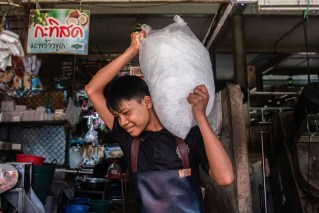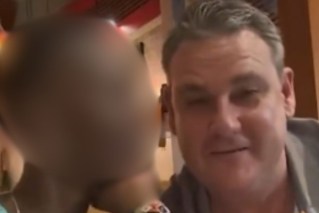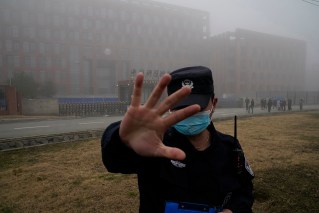Fiji faces wait for election outcome
Fijian Prime Minister Frank Bainimarama is provisionally ahead of opponent Sitiveni Rabuka but Fiji will likely need to wait a few more days to find out who its leader is.
A provisional count of more than half of polling stations puts Prime Minister Bainimarama’s FijiFirst party on 46 per cent and Mr Rabuka’s People’s Alliance on 33 per cent.
The National Federation Party, which is working with the People’s Alliance to dispel the government, is polling at just under 10 per cent.
Six other parties are currently below the five per cent threshold to be awarded a seat in the expanded 55-member parliament.
Prime Minister Bainimarama’s majority from the 2018 election sat at just 50.02 per cent after falling from almost 60 per cent in 2014.
The final tally will be reported by Sunday.
Prime Minister Bainimarama instigated the 2006 coup and was installed as prime minister the year after before leading FijiFirst to majority government at the 2014 and 2018 democratic elections.
Mr Rabuka heads People’s Alliance and is a former prime minister who instigated a coup in 1987 before bringing back democratic elections in 1992 and led the country through to 1999.
Mr Rabuka expressed doubt Prime Minister Bainimarama would accept defeat.
But he said there was little prospect of a coup, even if Mr Bainimarama decided to contest the result after Fiji’s military commander told his soldiers to respect the outcome of the election and said anything less would be an affront to democracy.
The Pacific nation has been marred by four coups since it gained independence in 1970.
“I accepted my defeat in 1999 and I hope he can do that,” Mr Rabuka said.
“We cannot live forever. We cannot rule forever. A successor from an opposition party should be accepted. It’s a normal process in democratic systems.”
Mr Bainimarama said he would “of course” respect the outcome of the democratic election when he cast his vote. But concerns over a possible coup remain in a nation marred by takeovers.
However, some voters remain concerned about potential repercussions if they speak out against the government.
One, who gave his name as Jack, said he wanted a change in government but both frontrunners were coup leaders.
“I want a change in government but when we are given a choice between two thieves, what hope is there for the future?” the 50-year-old said.
FijiFirst is trying to tie Mr Rabuka to policies he enacted when he took power in 1987 that sought to empower Indigenous Fijians.
Mr Bainimarama says Mr Rabuka hasn’t changed and voting for him will endanger the equality of Indo-Fijians, the descendants of indentured Indian workers.
It’s a message that resonated with Nemani, who said he voted for Mr Bainimarama because he believed all Fijians were equal.
“We are one people. I don’t want to go back to before,” he said.
Mr Rabuka has apologised for his coup, saying he’s a changed man. He’s hopeful a coalition with the NFP, led by Indo-Fijian Biman Prasad, will help build trust with the Indo-Fijian community.
Mr Bainimarama and FijiFirst are running on their record during the COVID-19 pandemic and a strong economy.
Economic growth in Fiji is set to reach double digits for this year and sit about 8.5 per cent next year, putting it first and third for growth in the region according to the Asian Development Bank.
But Mr Prasad questioned where the economic gains had gone, arguing Fijians were still no better off financially.
About a quarter of Fijians live in poverty. This jumps to more than 40 per cent in rural regions.
Cost of living pressures are also biting, with inflation eclipsing 5 per cent and the price of food more than doubling.
– AAP








